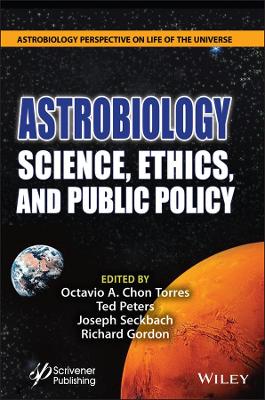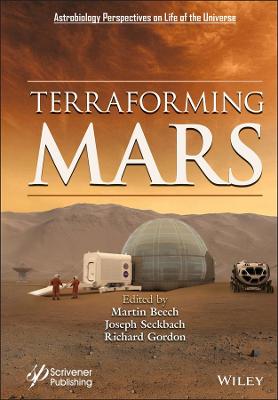Astrobiology Perspectives on Life in the Universe
2 total works
Astrobiology
by Octavio A. Chon Torres, Joseph Seckbach, Richard Gordon, and Ted Peters
This unique book advances the frontier discussion of a wide spectrum of astrobiological issues on scientific advances, space ethics, social impact, religious meaning, and public policy formulation.
Astrobiology is an exploding discipline in which not only the natural sciences, but also the social sciences and humanities converge. Astrobiology: Science, Ethics, and Public Policy is a multidisciplinary book that presents different perspectives and points of view by its contributing specialists. Epistemological, moral and political issues arising from astrobiology, convey the complexity of challenges posed by the search for life elsewhere in the universe. We ask: if a convoy of colonists from Earth make the trip to Mars, should their genomes be edited to adapt to the Red Planet’s environment? If scientists discover a biosphere with microbial life within our solar system, will it possess intrinsic value or merely utilitarian value? If astronomers discover an intelligent civilization on an exoplanet elsewhere in the Milky Way, what would be humanity’s moral responsibility: to protect Earth from an existential threat? To treat other intelligences with dignity? To exploit through interstellar commerce? To conquer?
Audience
The book will attract readers from a wide range of interests including astronomers, astrobiologists, chemists, biologists, space engineers, ethicists, theologians and philosophers.
This book provides a thorough scientific review of how Mars might eventually be colonized, industrialized, and transformed into a world better suited to human habitation.
The idea of terraforming Mars has, in recent times, become a topic of intense scientific interest and great public debate. Stimulated in part by the contemporary imperative to begin geoengineering Earth, as a means to combat global climate change, the terraforming of Mars will work to make its presently hostile environment more suitable to life—especially human life. Geoengineering and terraforming, at their core, have the same goal—that is to enhance (or revive) the ability of a specific environment to support human life, society, and industry. The chapters in this text, written by experts in their respective fields, are accordingly in resonance with the important, and ongoing discussions concerning the human stewardship of global climate systems. In this sense, the text is both timely and relevant and will cover issues relating to topics that will only grow in their relevance in future decades. The notion of terraforming Mars is not a new one, as such, and it has long played as the background narrative in many science fiction novels. This book, however, deals exclusively with what is physically possible, and what might conceivably be put into actual practice within the next several human generations.
Audience
Researchers in planetary science, astronomy, astrobiology, space engineering, architecture, ethics, as well as members of the space industry.

